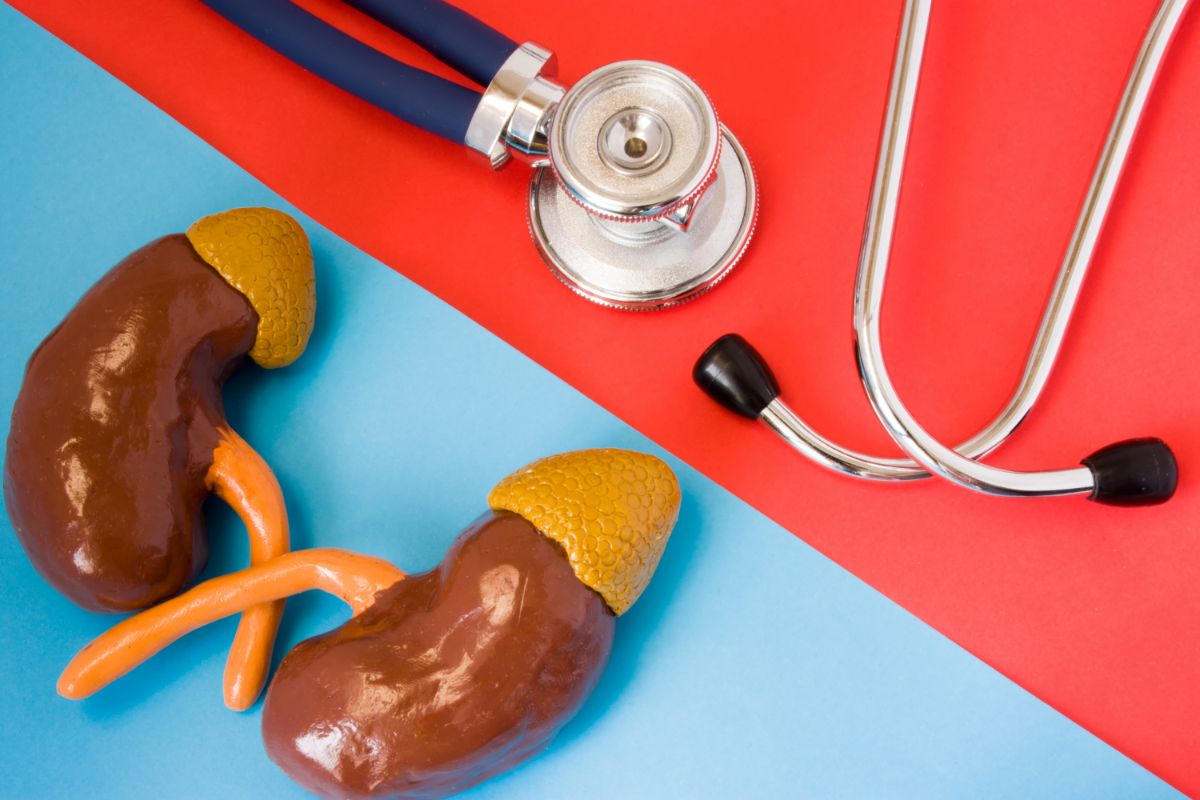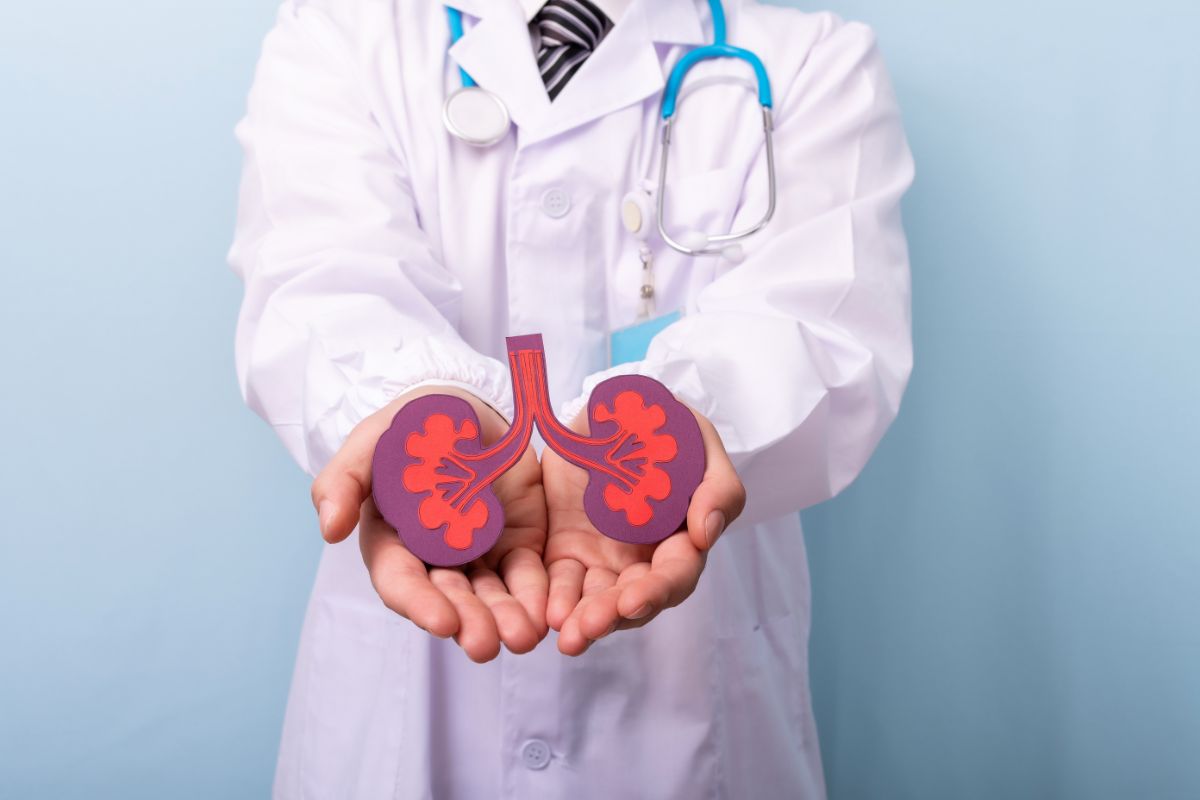As many people know, staying hydrated and being careful of what you are drinking is important for keeping your kidneys healthy.
This means knowing how much water to drink a day. This may mean that you will have to adjust to drink either more or occasionally less water to keep your kidneys functioning properly.

Unfortunately, because this has become common knowledge, a lot of the facts and advice surrounding this has become twisted and myths and lies have become intertwined with proper advice.
There are a multitude of misconceptions around how to stay properly hydrated to keep your kidneys healthy.
A common example of this is some people recommending that everyone has to drink 8 glasses of water a day.
While this measurement may work well for some people, the size of a ‘glass of water’ is very subjective, and depending on the person, this could be far too much as different people need different levels of water depending on a variety of factors.
Knowing these factors is important to understanding how to stay hydrated and healthy.
Some of these factors include; your age, the climate you live in, frequency of exercise, if you are pregnant or breastfeeding, and if you are ill or healthy.
This is just a few, but any of these variables can drastically impact your hydration levels and how this affects your kidneys.
Water is incredibly important to the functionality of your kidneys. It makes up on average around 60 to 70% of your bodies weight and is used by the kidney to get rid of any wasteful substances in the blood through urine.
The water in your body is also used to keep blood vessels open to make it, so blood can get to your kidneys to give them nutrients they need.
All of these systems begin to work much less efficiently if your body has less water to work with due to dehydration.
If you are becoming mildly dehydrated you will start to feel tired and some of your bodily functions will be limited.
But if you become severely dehydrated your kidneys can become permanently damaged which can lead to potentially fatal consequences.
This is why knowing how to stay properly hydrated is incredibly important, especially when you are in warm or humid environments.
If you are looking for advice on how to stay properly hydrated to keep your kidneys functioning as well as they can, read on!
How To Stay Hydrated To Keep Your Kidneys Healthy
While there is some level of nuance to keeping kidneys as healthy as possible, this guide will give you some basic tips to make it easy to remember!
Work Out How Much Works For You
As previously mentioned, a lot of people recommend 8 glasses of water a day to stay properly hydrated, but for a lot of other people, this can feel excessive.
And as also previously mentioned, this can vary based on other factors as well as how many other fluids you drink.
Making water a good portion of the fluids you drink a day will keep you from feeling the effects of dehydration.
A good system to work out how much water you need a day is to try 8 glasses one day and adjust to what works best for you, but makes you feel healthiest.
Have Your Kidneys Failed Before?
If you have failed kidneys, this will greatly affect how your body treats and works with fluids, including water.
This means that your doctor will hopefully have recommended how best to overcome this. If your kidneys have failed they struggle to excrete water meaning that too much water can cause real issues.
This is even more important if you are having dialysis treatment as your water levels must be closely controlled.

You Can Drink Too Much Water!
While some people think this is not possible, it is entirely possible that you can drink too much water, and in certain conditions this can cause real problems.
As previously mentioned people with kidney problems need to keep an eye on their fluids but they are not the only ones.
For example, some marathon runners drink too much water that they eventually end up diluting their sodium content in their blood that can end up in a harmful condition known as hyponatremia.
Keep An Eye On Your Urine
While this is common advice, what you drink, and how much you drink will affect the appearance of your urine.
Because of this the color of your urine can be used as a good indicator for when you may have issues.
For example if you are not urinating as often as you think you should or your urine is dark yellow it is a clear sign you are dehydrated.
Stay Aware Of Any Medication Or Procedures
Some medications will require you to drink more than normal for them to work properly and because of this when you are taking them you should be mindful to follow instructions.
When you are being prescribed a medication that will require extra hydration, your doctor should tell you how much water you will need to drink for it to be effective.
For example, medication that uses contrast dyes need extra water to stop any kidney damage. If you are unsure about hydration and your medication, contact your doctor.
Takeaway
Staying properly hydrated is the key to having the healthiest kidneys possible and avoiding the very negative consequences of mild, and especially severe, dehydration.
Staying properly hydrated will also have the benefit of stopping other painful problems like kidney stones and UTIs which can cause a lot of pain even when they are being treated.
These issues are much less likely to occur if you have a healthy level of hydration. If you do not think you are sufficiently hydrated follow the advice here, and if you are still facing the effects of dehydration, consult a healthcare professional!
- Understanding Male Reproductive Health: A Complete Guide - February 2, 2025
- Simple Healthy Skin Habits for Radiant Skin - December 6, 2024
- Unlocking the Connection Between Nutrition and Mental Health - December 3, 2024








